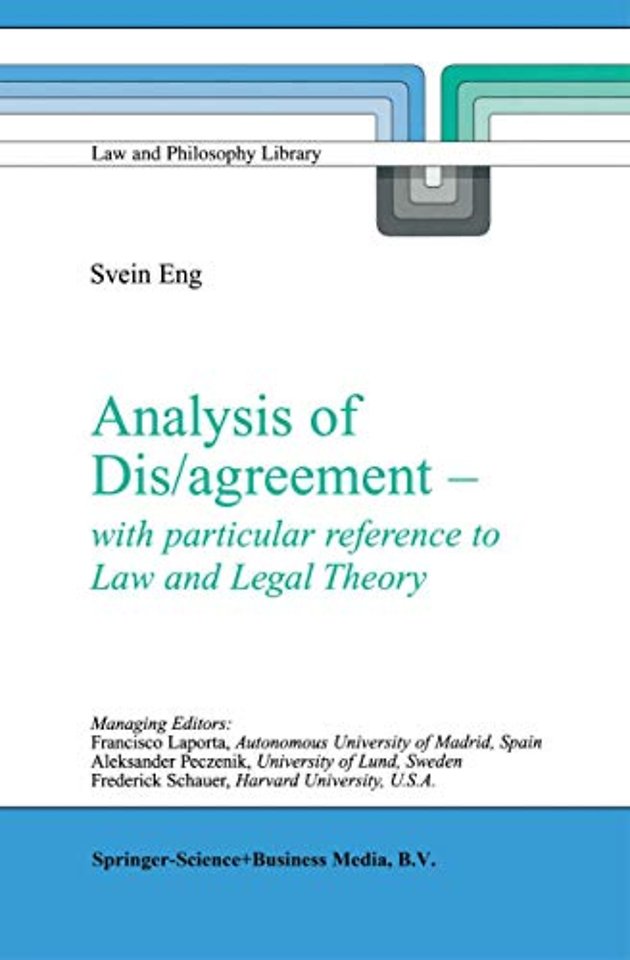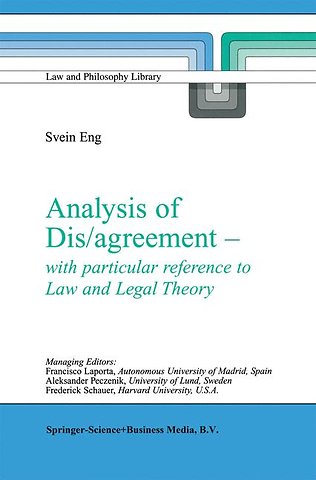Analysis of Dis/agreement - with particular reference to Law and Legal Theory
Samenvatting
In order to determine whether two participants in a discussion are in real dis/agreement, one must compare their propositions. Comparison presupposes yardsticks in common. This work thematises such yardsticks, in that it demonstrates the existence, content and factual significance of a relatively well-delimited set of proposition types and proposition patterns, with their accompanying tenability criteria and motivating interests. It is for philosophers, legal theorists, lawyers, and linguists.

